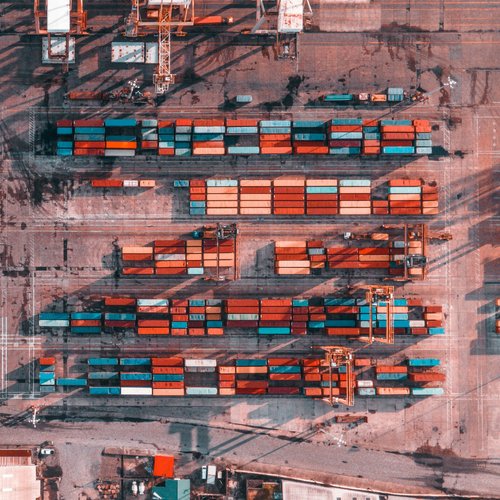Disruption: Growing Geo-Political Acceleration In 2025 & Its Impact?
Wednesday, 08 January 2025By Bob McDowall

When this era of Geo-Political history is written, the theme of disruption is likely to highlight the global pandemic as the starting point. As the world emerged from Covid, political, economic and financial disruption has occurred in many guises.
As we look forward, with varying degrees of trepidation, to Donald Trump becoming the 47th President of the USA, it is highly likely that he is to play the role of human catalyst to this increased disruption.
The degree to which Trump’s new administration exercises its powers of military, economic and Political intervention in Europe and Asia in particular will dictate the scale of disturbance to the world order: A move towards an Isolationist Policies such as reduced military spending, increased trade tariffs and an expansion of mining and drilling in the USA will see commensurate responses by other major jurisdictions and geographical regions. It is highly likely that this will accelerate global fragmentation.

Geopolitical conflicts, involving a major player in the world market, affect the prices of oil and commodities, particularly in oil-importing countries. Consequently, the unprecedented changes in oil prices impact inflation and investments in energy transition projects. Currently trade tariffs are in ascendancy. As geopolitical conditions change, commercial acceleration may follow, as companies may be able to attract new customers and capture more market share. Opportunities may emerge when new tariffs disproportionately increase the cost of a competitor’s product, for instance, or when new trade agreements make it possible for a company to market to customers who have historically been out of reach. For instance, the construction equipment company Caterpillar was well positioned to increase sales in Australia and Chile because of free trade agreements among those two countries and the United States.
Geopolitical shifts are impacting on the cost-effectiveness of business operations in areas such as relationships with suppliers, global human resource strategies and technology infrastructure. The commercial world needs to constantly assess the degree to which they need to shift and sort business operations. Geopolitical tensions have made human resource management more complicated by fragmenting workforce cohesion across cultures and nationalities. Companies must respond to these growing disruptions by reviewing talent concentration patterns, rebalancing workforce allocations, and decentralising important functions like human resources or IT support.
Corporate reactions to geopolitical shifts are manifesting themselves through more intense monitoring of regulatory, tax, and other local policies that directly affect their business strategies. Businesses must similarly monitor geopolitical risks and economic policies in the countries in which they operate and be aware that geopolitical influences are often uncertain and intertwined as actions from one country beget reactions from another. In such environments, corporations must integrate geopolitical considerations into their regular strategy and business-planning exercises at board level.

Disruption caused by geopolitical and global economic shifts has a large effect on corporate interests. Any acceleration in disruption will highlight vulnerabilities, capability gaps, and growth opportunities, which need to be analysed and acted upon through assessments of geopolitical and global economic shifts. In the final analysis, shifts in policy could affect a company’s strategic investment decisions depending on the company’s appetite for risk, and their ability to control, rather than trying to predict, what may or may not come to pass.
Disruption arising from changes to the political balance of power are a prerequisite for enabling new and ambitious forms of innovation and experimentation. Initiatives to slot new energy sources or technologies into existing infrastructure and decision making can solicit negative social and environmental outcomes. The shift towards green infrastructure is part of an accelerating trend where nations recognize that energy security, technological leadership and climate action are intertwined. However, geopolitical competition has introduced bottlenecks in the critical mineral supply chain, raising concerns about how this race might inadvertently slow the very progress it seeks to achieve.
Geopolitical disruption shocks may occur with more frequency, driven by the velocity of change. Once stable, high-growth business segments, such as luxury global brand products, may stutter, whilst previously overlooked segments, such as 3D printing and printer manufacturing or on-line gaming, may represent new potential. Businesses must continuously assess and react to shifting competitive dynamics in their industries. They must navigate geopolitical disruptions in the same way, continually evaluating and reallocating capital to higher-growth, lower-risk segments, through mergers, acquisitions, or partnerships and divesting from underperforming, high-risk areas.
Geopolitical events have caused notable disruptions in the supply chain. These events have led to facility closures. Consequently, many supply chain leaders have resorted to sourcing from multiple vendors. They are distancing themselves from just-in-time ordering and delivery. They are increasing and even stockpiling levels of critical inputs. Some are using advanced technologies to anticipate and prepare for future geopolitical disruptions.
Geopolitical tensions can complicate talent management and undermine workforce cohesion across cultures and nationalities. But there are steps that companies can take to account for such disruptions, including reviewing talent concentration patterns, rebalancing workforce allocations, and localising important functions, such as human resources or IT support. Digital talent is in short supply; some companies have reached out to foreign workers to help fill the gap, which in turn has increased these businesses’ exposure to risk from changes to visas or immigration law. One way to avoid or mitigate this risk is to establish delivery centres in locations that have surplus digital talent, locations where governments offer incentives for companies that are willing to relocate talent.
Dealing with the complex landscape of ICT regulation across jurisdictions is a major challenge. Combating increasingly sophisticated cyber-attacks, intellectual property theft, data localization requirements, disruptions from trade conflicts, and fragmented data regulations is a dilemma. Corporations have built technology infrastructure extending across borders, but that strategy results in their technology clusters and other resources exposed to geopolitical headwinds.

Artificial intelligence presents the most powerful form of disruption associated with Political and trade at least to date. AI advances will shape disruptions, although predicting the effects AI is impossible. Nonetheless, Leaders in Government and Commerce will need to consider its impact on some critical sectors: security, domestic industries, and human biology and social behaviours. Politically authoritarian jurisdictions will seek competitive advantages by using AI for state and military purposes. Powerful countries with large amounts of data and computing power will increase their domination but may fall prey to the ingenuity of smaller jurisdictions. Smaller jurisdictions will seek to deploy AI technology to disrupt global affairs using smaller but more efficient models, that require less data but fulfil dual commercial and national security uses. Currently AI is already driving an increase in energy requirements and may shape how quickly companies can develop new energy solutions. Generative AI is intensifying these disruptions and will continue to place this technology at the centre of geopolitical competition.
It is impossible to provide specific solutions for current, new and unanticipated forms of disruption. However, some loose but flexible approach formulations should help anticipate and mitigate them:
- Establish dedicated geopolitical functional groups whose primary focus is to monitor the geopolitical landscape, help build forecasts, plan against various scenarios, while keeping leaders and boards informed so they can respond quickly. These geopolitical functional groups could be led by a geopolitics officer and staffed by a specialized team, can ensure that the company is positioned to take advantage of both current global shifts and the ones that will inevitably emerge;
- Simultaneously establishing a 'playbook' or guide to areas for focus in combatting disruption;
- Accept that future-proofing organisations to disruption is all but impossible but recognise the necessity to anticipate the impact of potential laws, policies, and regulations. Without foresight, jurisdictions and enterprises may be subject to consequences, accompanying their own financial and reputational costs.